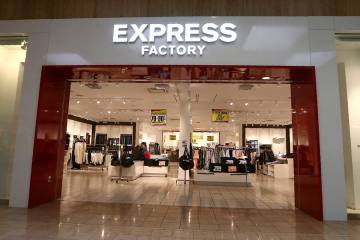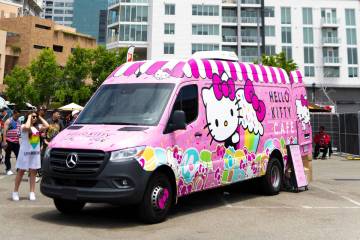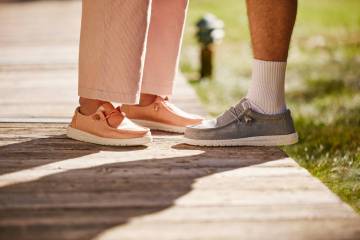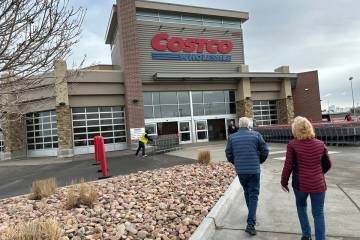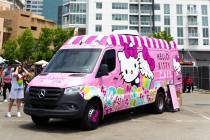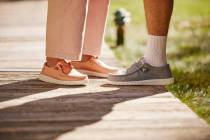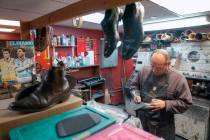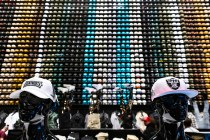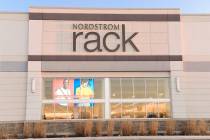Truth or Hair
Whitney Smith arrived for her hair appointment at Tamed Hair & Nails salon at 10 a.m. The clock on the wall reads 3:10 p.m. when she's finally unsnapping her salon smock to head home.
No one was running behind, either. Smith's African-American hair just requires a little extra TLC if she wants it to look like the photo she brought in today: bobbed and silky smooth with a hint of color. During the time span of her appointment, she managed to miss the entire Balloon Boy fiasco. Does she ever resent the time commitment?
"No, because I know I'm gonna be beautiful in the end," says the 24-year-old with a smile.
According to the message Chris Rock aims to deliver in "Good Hair" -- his new documentary about the extremes African-American women go to for their hair -- Smith didn't need five hours of chemical relaxing, blow drying, coloring or flat ironing to be beautiful; she already was. A well-meaning moral, but Chris Rock isn't an African-American woman. No matter which side of the fence you comb your coif on, however, everyone can agree on one thing. "Good Hair" has the public fascinated with African-American women's hair.
It's not just the time commitment, either. Smith's stylist, Stephanie Dixon, earns between $2,000 and $3,000 a week. While the recession trampled over many non-African-American stylists in town, it skipped right past her. Lonnie Burse, owner of It's All About You Salon, can say the same. Burse has her opinions as to why, but her stylist Kanisha Randall puts it best.
"I might not have 25 cents to my name," she says, "but if my hair looks good, then I'm OK."
And, for pretty hair, she can expect to pay a pretty penny. Whether it's the uber popular Indian hair weaves (start at $600) celebrities like Raven-Symone favor, a lace-front wig (approximately $1,200) like Beyoncé sports, chemical relaxers aka "creamy crack" (approximately $80 with $50 bi-weekly follow ups) that unkink the hair or weekly press and curl appointments (start at $60 bimonthly), African-American hairstyles can suck a wallet dry in no time.
One local stylist estimates African-American women spend five to 10 times more on their hair than other women. It's not entirely a vanity issue, either. A lot of times it comes down to manageability. The more coarse the hair, the higher the maintenance. In fact, the term "good hair," where Rock's documentary gets its name, is commonly used in the African-American community to reference low-maintenance hair.
"It's an old southern term. They would say biracial hair was 'good hair.' They would say coarse hair is not 'good hair' but I beg to differ," says Burse, who specializes in chemical-free hair. "Healthy hair is 'good hair.' "
Needless to say, it's a sensitive subject. Especially when African-American mothers consistently have to explain to their daughters beautiful hair comes in all textures. No matter what Barbie or the cover of Cosmopolitan magazine may try to tell them.
Thandi Martin-Bernal knows a thing or two about wanting what she couldn't have. "I wanted to be white and I wanted my name to be Rebecca," she says of her childhood. Martin-Bernal, of Las Vegas, remembers feeling embarrassed when her Afro-wearing mother would pick her up from fifth grade. It didn't matter that she grew up in a predominantly African-American community. Her Cabbage Patch Kids didn't look like her and the pretty women on TV didn't, either.
Today, her name suits her just fine, but the 32-year-old still has one hair complaint. Martin-Bernal can't get her own Afro big enough.
"I take pride in being comfortable with my natural hair," she says. "I can appreciate that now as an adult."
She estimates her hair costs $200 annually to maintain. That's less than most non-African-American women spend to upkeep highlights for the summer.
Women such as Martin-Bernal make 55-year-old Tara Hill nostalgic. "I came out of the era of Afros. Everybody was so proud of the natural look. It was 'Say it loud, I'm black and I'm proud,' " says the Fresno resident during her hair appointment at Roots Salon. "Now (young women) all want weaves." That includes her own daughter, who cocktails on the Strip and, according to Hill, has to wear extensions if she wants good tips.
Reason being, some African-American hairstyles don't always have a comfortable place in mainstream society. Just look at A.J. Calloway, says Roots stylist Kierra Jemison. The former veejay for BET's 106th & Park had a signature look of corn rows that crawled down his back for years. "Now he's on Extra," she says, "without the corn rows."
African-American women feel the same pressure to chemically relax or weave their natural hair to better fit in at the workplace. So much for embracing the naturally tousled look or bedhead trend that women such as the Olsen twins enjoy.
For all the criticism that such high-maintenance hair can garner, one undoubtedly positive effect emerges from it all. The client-stylist relationship in African-American salons extends far beyond just small talk.
Lakeisha Jefferson at It's All About You made a client a bridesmaid in her wedding. Lynn Flowers of the same salon refers to a hair appointment as a full-blown counseling session. It's not unusual for clients to call ahead and find out what everyone in the salon is munching on for the afternoon. Should they stop to pick anything up?
Dixon at Tamed salon developed a relationship with a cancer-stricken client that grew so tight the family asked her to partake in the bedside rotations at the hospital.
"You hear everything about their household, children, financial situation, who's in the hospital, who's graduating," she says. "That's what happens when you see the majority of your clientele once a week."










